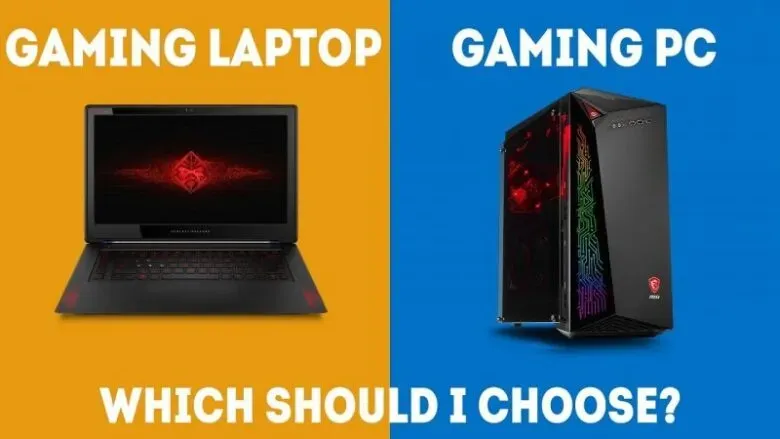Choosing between gaming laptops vs desktops is a decision many players face, and the right choice depends on where you game, how you travel, and how much you value upgradeability. When you weigh raw power, cooling, and longevity, the comparison often centers on gaming laptop vs desktop performance, with desktops typically delivering higher sustained frame rates and more headroom for upgrades. For mobility and daily use, a modern notebook-style rig may hinge on how long the system can run unplugged, how quiet it stays under load, and how easily you can carry it around. For shoppers seeking informed guidance, weigh total cost of ownership, peripheral requirements, and the ecosystem you prefer, not just raw headline specs. Ultimately the choice comes down to your priorities—desktop power for fixed setups and future-proofing, or a portable unit for LANs, travel, and flexible play.
Beyond the explicit labels, readers can think in terms of portable gaming rigs versus full desktop towers, where mobility, screen real estate, and cooling design shape the experience. Using related concepts such as portable gaming notebook, compact workstation, desktop PC, and modular system helps connect performance, upgradeability, and cooling to real-world use. In practice, the balance comes down to how you prioritize sustained frame rates, upgrade options, noise levels, and energy efficiency across different workloads. Consider your typical venues—home, office, library, or travel—since reliable power, monitor setup, and peripheral flexibility often decide between a sleek laptop and a robust desktop rig. By mapping your needs to these semantic cues, you can pick a gaming solution that aligns with your workflow while still delivering the gaming feel you want.
Gaming laptops vs desktops: Performance, Portability, and Value
When you examine gaming laptops vs desktops, performance isn’t a simple win-lose story. Desktop systems typically offer higher power budgets, more robust cooling, and easier room for top-tier GPUs and CPUs, which translates to higher sustained frame rates in demanding titles. In discussions of gaming laptop vs desktop performance, desktops usually excel during long sessions, high-refresh-rate gaming, and VR-ready workloads, while laptops deliver impressive results within a tighter thermal envelope.
For many players, the choice hinges on use case: if you want peak frame rates on the latest games for hours on end, a desktop is the safer bet. If you need to game in coffee shops, on trains, or at LANs, a modern gaming laptop can deliver a surprisingly close experience in a compact package. This is the essence of the desktop gaming rig vs laptop discussion, where the best choice aligns with your budget, travel needs, and how you balance raw power against portability.
Maximizing value and longevity: upgrade paths, battery life, and ecosystem
Value and price are central to the ongoing debate about best gaming laptops vs desktops. A desktop build often delivers more raw power per dollar and offers straightforward upgradeability, letting you swap GPUs, CPUs, RAM, and storage as games demand more. In this light, the phrase best gaming laptops vs desktops appears in many guides to help buyers compare not just models but ecosystems and upgrade trajectories.
Beyond initial cost, longevity matters. Desktop gaming rigs are designed for easier upgrades, which tends to extend their useful life beyond a typical laptop’s horizon. Meanwhile, gaming laptop battery life remains a critical factor in real-world use, influencing decisions for travel-first setups or remote work. When weighing laptop vs desktop gaming power, consider how a portable footprint, cooling efficiency, and peripheral ecosystems (monitors, docks, keyboards) affect total cost of ownership and long-term satisfaction.
Frequently Asked Questions
Gaming laptop vs desktop performance: which setup delivers higher sustained frame rates for demanding games?
Desktops typically offer higher sustained performance due to larger power budgets and superior cooling, delivering higher, steadier frame rates in demanding titles. When you compare gaming laptop vs desktop performance, desktops usually win under sustained load, but laptops can be close in many titles; they’re constrained by thermal envelopes and battery limits, which can cause throttling during long sessions. For hours of Ultra settings and future-proofing, a desktop is usually the safer bet; for portable play, a modern gaming laptop can deliver a surprisingly close experience when plugged in. If you care about laptop vs desktop gaming power, desktops generally edge it in power headroom.
Desktop gaming rig vs laptop: which is the wiser choice for upgradeability, cooling, and long-term value?
A desktop gaming rig typically wins on upgradeability and cooling. Desktop PCs allow easy GPU/CPU/RAM/storage upgrades and larger, quieter cooling, which contributes to longer-term value and 5–7 year longevity. Laptops offer portability and built-in battery life for non-gaming tasks, but upgrades are limited and thermals are tighter, which can cap performance over time. If upgradeability and future-proofing matter most, choose a desktop; if you must move your setup often, a gaming laptop provides solid value with some inevitable compromises. For buyers weighing the best gaming laptops vs desktops, prioritize your need for mobility vs upgrading headroom.
| Aspect | Desktop advantages | Laptop advantages | Key takeaway |
|---|---|---|---|
| Performance under sustained load | Higher power budgets, better cooling, more room for powerful GPUs/CPUs; typically higher sustained frame rates and less throttling. | Strong performance in a compact form, but constrained by thermal envelopes and battery life; can still match entry-to-mid desktops in many titles. | Desktops usually win long sessions and VR-ready workloads; laptops excel in portable contexts while delivering near-desktop levels within thermal limits. |
| Value and price | Desktop builds often deliver more raw power for the price and offer easier upgradeability; can outpace similarly priced laptops and provide more headroom for upgrades. | Portable performance with a premium; portability can justify higher upfront cost and total cost of ownership when considering peripherals and space. | For many buyers, value comes from matching performance to use case, with desktops favored for budgets and upgrades, laptops favored for mobility. |
| Upgradability and longevity | Desktops are designed to be opened, swapped, and expanded (GPUs, CPUs, RAM, storage). | Laptops offer limited upgrades (often memory/storage); GPUs/CPUs are usually soldered; desktops are typically more future-proof. | If you want longer-term upgrade paths, a desktop is generally the wiser investment. |
| Power, cooling, and durability | Desktop cooling solutions support higher sustained performance with quieter operation; better thermal headroom. | Laptops have compact cooling and rely on battery power; gaming on battery reduces performance and decreases longevity of battery. | Desktops typically provide steadier performance; laptops trade some consistency for portability and convenience. |
| Display, peripherals, and ecosystem | More monitor options, larger screens, higher refresh rates, and easier multi-monitor setups. | Built-in display on many models; docking options available; portability limits monitor complexity. | Choose based on whether you prioritize screen real estate and peripherals (desktop) or compact, all-in-one portability (laptop). |
| Practical decision guide | Best for students, freelancers, or travelers who value mobility and quick access to games. | Best for high-end performance at a fixed location and easy upgrades; good for users who prioritize cooling and efficiency. | Hybrid approaches (desktop at home + laptop for travel) can offer the best of both worlds. |
| Real-world profiles | Esports-focused users may prefer desktop stability and high frame rates. | Creators might favor desktops for upgrades and rendering; portable laptops suit on-the-go work. | Balancing budgets and needs—start with one, consider a secondary portable option if mobility matters. |



